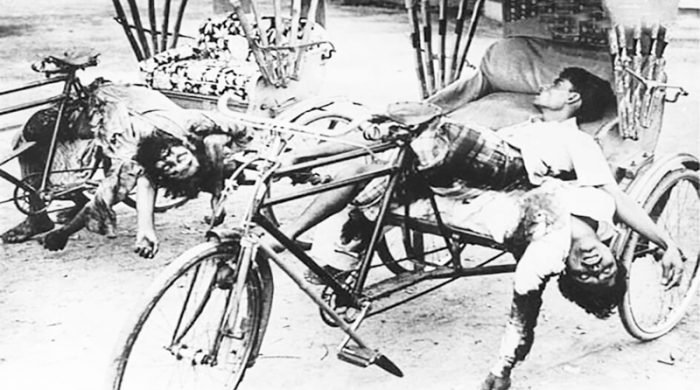
Today is National Genocide Day. One of the days of brutal stigma in the history of human civilization. On the night of March 25, 1971, in the darkness of the night under the name ‘Operation Searchlight’, the occupying Pakistan imposed a brutal massacre on the unarmed Bengalis.
The nation has been commemorating the day of genocide on the eve of Bangladesh’s declaration of independence as ‘National Genocide Day’.
This massacre was carried out exactly 50 years ago, on this day in 1971, when the people of Bengal were aroused by the desire for independence to kill the aspiration of a nation for independence.
At that time Bangladesh was basically obsolete. The historic speech of Bangabandhu Sheikh Mujibur Rahman, the father of the nation, the great hero of independence, had already made people understand that independence was imminent.
On the night of March 25, Pakistani troops loaded jeep-trucks from the cantonment and spread throughout the city with tanks and weapons. When the innocent people were in asleep, the invading forces jumped like hyenas. Rifles, machine guns and mortars roared in the air. The killings were carried out indiscriminately. An infamous history was written.
The killing took place included Rajarbagh Police Line, Peelkhana EPR Headquarters, Dhaka University, Dhaka Medical College Hospital, Bangladesh University of Engineering, Nilkhet areas.
At around 1:15 pm, a group of soldiers went to Bangabandhu Sheikh Mujibur Rahman’s house No. 32 in Dhanmondi. The telephone line of the house was cut off at around 1:25 pm. They arrested Bangabandhu and took him away to thwart the dream of independence of Bengalis forever.
Earlier, after midnight on March 25, i.e. in the early hours of March 26, Bangabandhu declared the war of independence and armed liberation through the wireless of the then EPR. On the basis of this declaration of independence by Bangabandhu, the Independence Day of Bangladesh was celebrated on 26 March.
How many Bengalis had to be killed by the Pakistani forces on the night of March 25 is not known. However, according to the Sydney Morning Herald of Australia, on the night of March 25 alone, about one lakh people were killed in Bangladesh.
Some information is also available in the documents published by the government of Pakistan itself. The white paper they published during the war of liberation states that from the night of March 1, 1971 to the night of March 25, 1971, more than one lakh people were killed.
This year, in the event of a coronavirus infection, there will be a limited number of programs on this day of ‘National Genocide Day’.
According to an official statement, a symbolic ‘black out’ will be observed across the country from 9pm to 9:01 pm on March 25, the day of the genocide. No government, semi-government, autonomous and private buildings and installations will be illuminated on this night.
Besides, the Secondary and Higher Education Department of the Ministry of Education has given five instructions to all the educational institutions of the country to observe the day in accordance with the hygienic rules with due dignity.